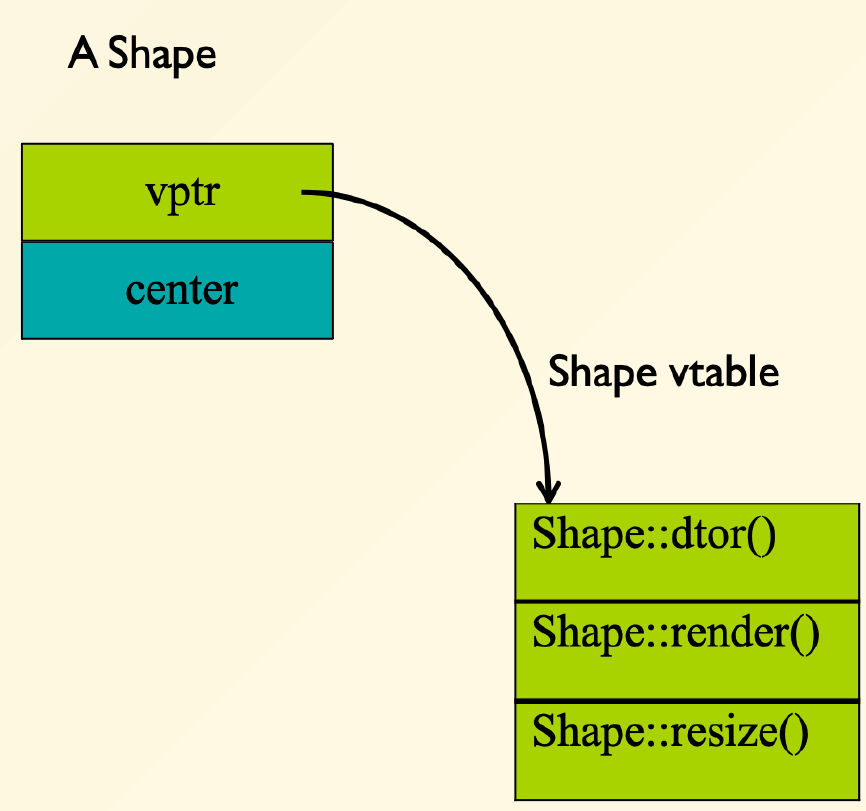Polymorphism¶
约 143 个字 73 行代码 预计阅读时间 1 分钟
Virtual Function Table¶
-
operator =
Not copied
Ellipse elly (20f, 40f); Circle circ(60f); elly = circ;Only part of circ that fits elly are copied.
vtable is not copied.
-
Pointer =
vtable is copied.
-
Reference =
vtable is copied.
Think reference as alias!
-
Dtors can be virtual
Note : The ancestors' Dtors are also called.
class A{ public: A(){} virtual ~A(){cout << "A::~A()" << endl;} }; class B : public A{ public: B(){} ~B(){cout << "B::~B()" << endl;} }; B b(); /* Output: * B::~B() * A::~A() */
-
**Key Word 'override' **
This keyword let compilers to check if the overrode function has the same signature(e.g. argument list).
If the overrode function is not exited in the base class (denoted as virtual), compile error.
// Compile error class A{ public: void f(){} }; class B : public A{ public: void f() override {} };// Compile error class A{ public: virtual void f(){} }; class B : public A{ public: void f(int x) override {} };Override multiple signatures
If you override an overloaded function, you must override all of the variants! If not, others will be hidden
class A{ public: virtual void f(){} virtual void f(int x){} // Hidden in B }; class B : public A{ public: void f() override {} }; B b; b.f(1); // Compile error A *a = new A(); B *b = reinterpret_cast<B*>(a); // 'Down cast', needs reinterprete_cast b->f(1); // Also compile error, even if 'pointer =' preserve vptr
-
Return Type Relaxation
Only applied for pointers and references
class A{ public: virtual A* f1(){} virtual A& f2(){} virtual A f3(){} }; class B : public A{ public: B* f1() override {} // Good B& f2() override {} // Good B f3() override {} // Compile error };
-
Abstract class
Define interface without defining an implementation.
-
Pure virtual function
virtual func(args...) = 0; // Pure virtual virtual func(args...); // Not pure virtual !Must be implemented in derived class.
Destructor can not be pure virtual but with empty body.
- Only static members
- Static member functions
-
